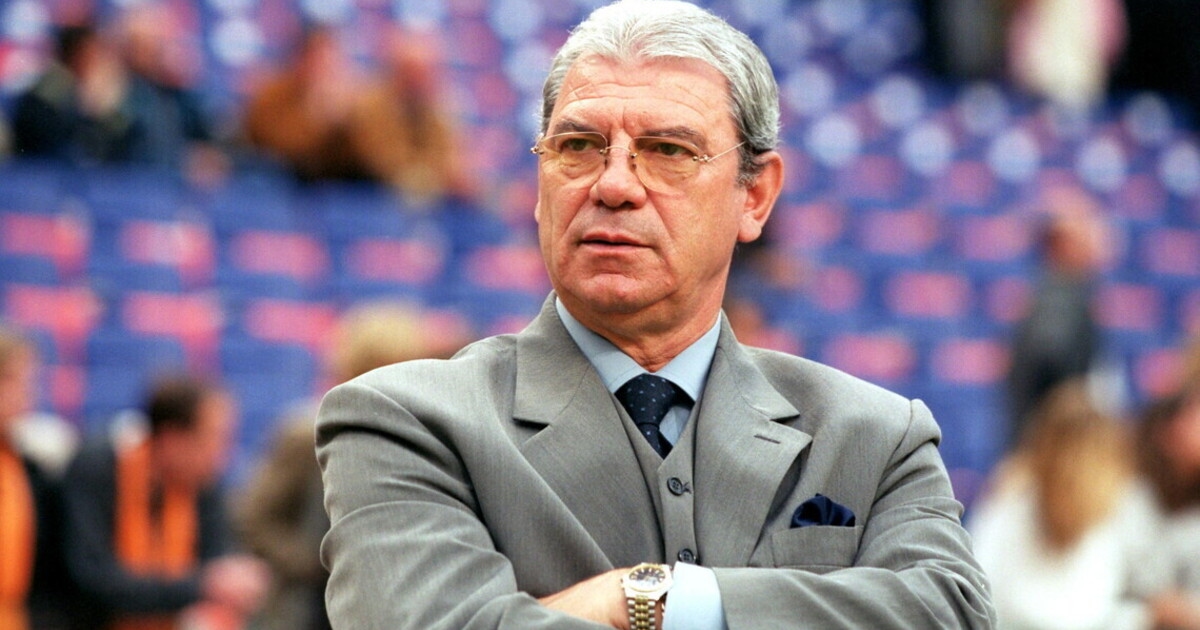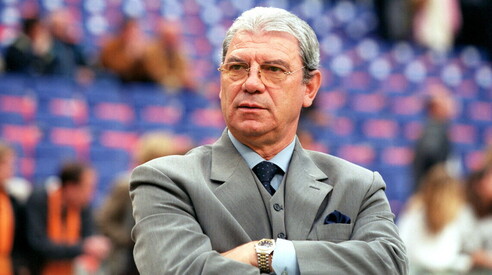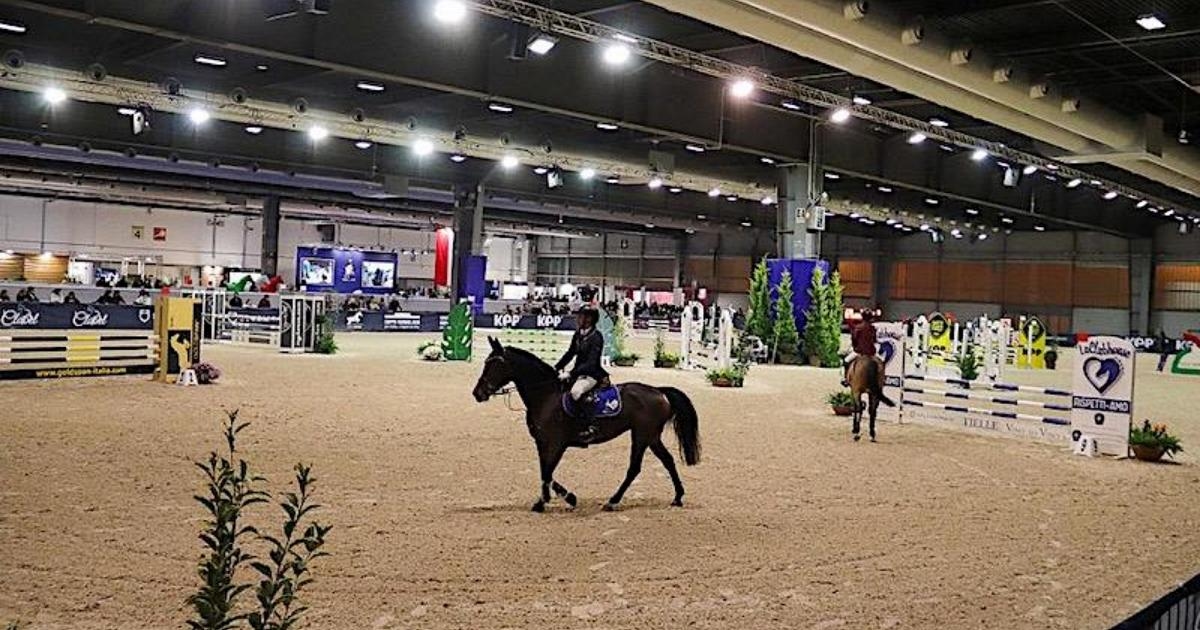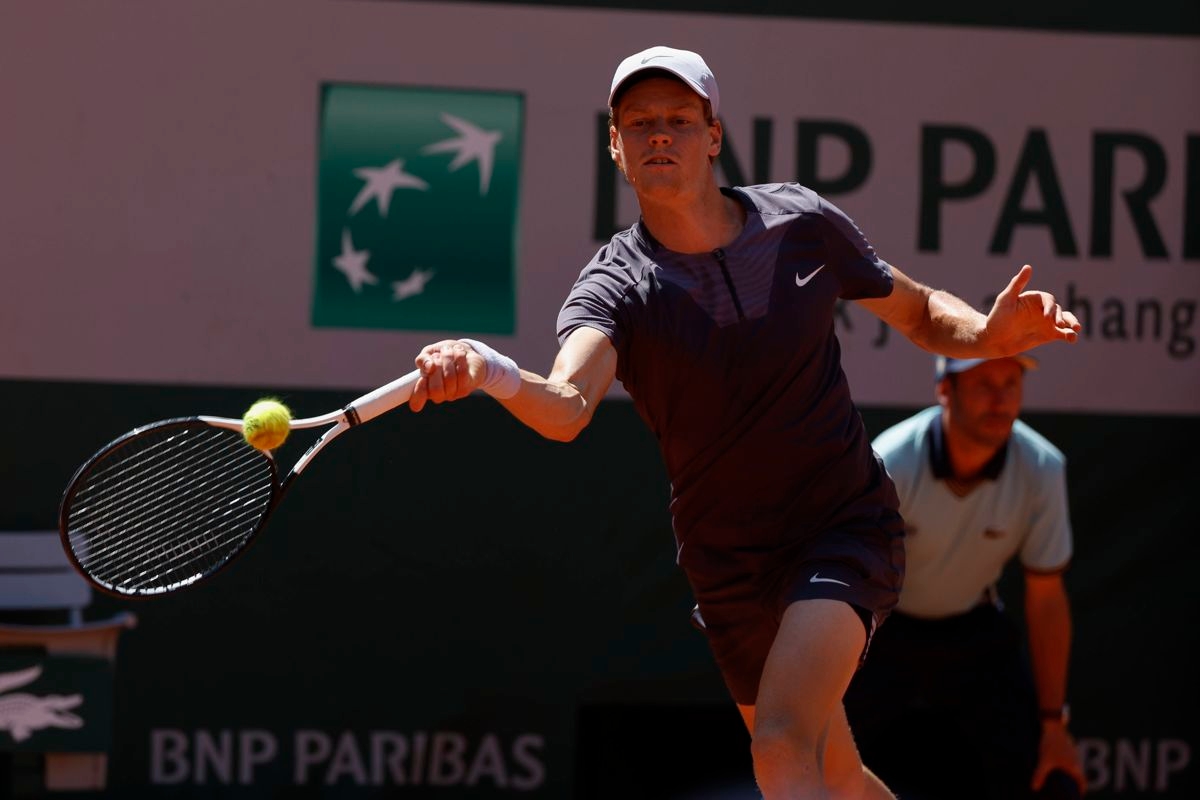Emerich Jenei, the anti-establishment coach in Ceausescu's Romania


Emerich Jenei (photo Getty Images)
1937-2025
The coach who led Steaua Bucharest to the European Cup in the 1985-86 season has died. A man of elegant manners, he was Romania's great contrarian, capable of clashing with both the regime and democracy.
Helmut Duckadam, the goalkeeper who managed to save all four penalties taken by Barcelona players in the 1985-86 European Cup final in Seville, allowing Steaua Bucharest to win the cup , said that "we were received by Ceaușescu after the final against Barcelona and were surprised by his coolness. He even told us that, if we had prepared better, we could have won in 90 minutes!"
That coolness might have been surprising, but only to a certain extent. Because for the dictator, that cup raised to the sky over Seville, more than a national joy and a great propaganda moment for his regime, it represented a victory for one of the most detestable people, at least from his point of view, in all of Romania: Emerich Jenei, the coach of European champions Steaua Bucharest .
And yes, Emerich Jenei, who died on the evening of Wednesday, November 5 , was a calm and gentle person, who almost never smiled, but had gentle manners and the elegance of a gentleman.
Nicolae Ceaușescu, however, detested Emerich Jenei. He detested him because he was a free man despite the regime, because he allowed himself to express his opinion without complying with what the regime wanted to hear, because he cordially disregarded the dictates of Steaua Bucharest, then managed by the dictator's son Valentine Ceaușescu. Above all, because that victory represented the coach's triumph over the presidency.
We need to go back several years to understand the origins of this great hatred. At the end of the 1977-1978 season, Valentine Ceaușescu decided to fire Emerich Jenei, the coach who had managed to win two Romanian championships in three seasons, leading the club back to a league title after eight seasons. Jenei was good, but he had his own way, he spoke out and wouldn't listen to anyone, not even the president, not even the president of the Socialist Republic of Romania.
Valentine Ceaușescu was convinced that his team could easily do without such a man. This was completely wrong: the next five championships were a succession of sporting failures.
Emerich Jenei, however, was liked by Constantin Olteanu, who was Minister of Defense of the Socialist Republic of Romania between 1980 and 1985. They were both Catholics in a country where one could not be Catholic. And they were both anti-Soviet in a country where one could not be anti-Soviet, despite having chosen an autonomous and extravagant interpretation of communism.
It was Constantin Olteanu who convinced Valentine Ceaușescu to bring Emerich Jenei back to the bench that season. Indeed, it was General Constantin Olteanu who forced his return in the 1983-1984 season. Emerich Jenei sat back on the bench and missed the title by two points. For this very reason, he was fired.
Three defeats in the first three matches and the risk of a popular uprising against the club (and who knows... the regime was not in good health), led dictator Nicolae Ceaușescu to advise his son to listen to General Constantin Olteanu and bring Emerich Jenei back to the bench.
And Emerich Jenei, once he had regained control of the team, began to win, benching all the players the president had chosen, focusing on the group he had molded the previous year according to his commandments: no swearing, no eating sunflower seeds, at least nine hours of sleep, not caring what the party said about freedom, thinking for yourself on and off the pitch, reading the Gospel in moments of uncertainty. Steaua Bucharest won both the league and the Romanian Cup. The following year, they won the European Cup.
He became a legend. A legend that endured the fall of Nicolae Ceaușescu's regime . Because Emerich Jenei was both a man of the regime and an opponent of the regime, without being either a man of the regime or an opponent. Because he never celebrated the regime or the uprising, he always limited himself to saying that "man must be animated by common sense, by a sense of community, and above all, he must be capable of taking responsibility."
Skeptical at first, skeptical later: “ I have seen half-men with half-brains rule under dictatorships, and half-men with half-brains rule in free countries . The problem with Romania , and with much of the world, is that half-men with half-brains manage to rise to power.”
Always skeptical: "After the revolution, we only gained the right to shout. Nothing else. It's useless for me to try to say anything, no one will listen to me." The problem was the same: half-men with half-brains.
He's never wanted to be a mob leader. "Why should I waste my time with people who believe bullshit?"
He preferred reading, running, and coaching. He preferred to open his men's minds because "you can cultivate one field, two fields, then that's it. If the extension is too large, something is bound to go bad and you risk losing the entire harvest."
More on these topics:
ilmanifesto



